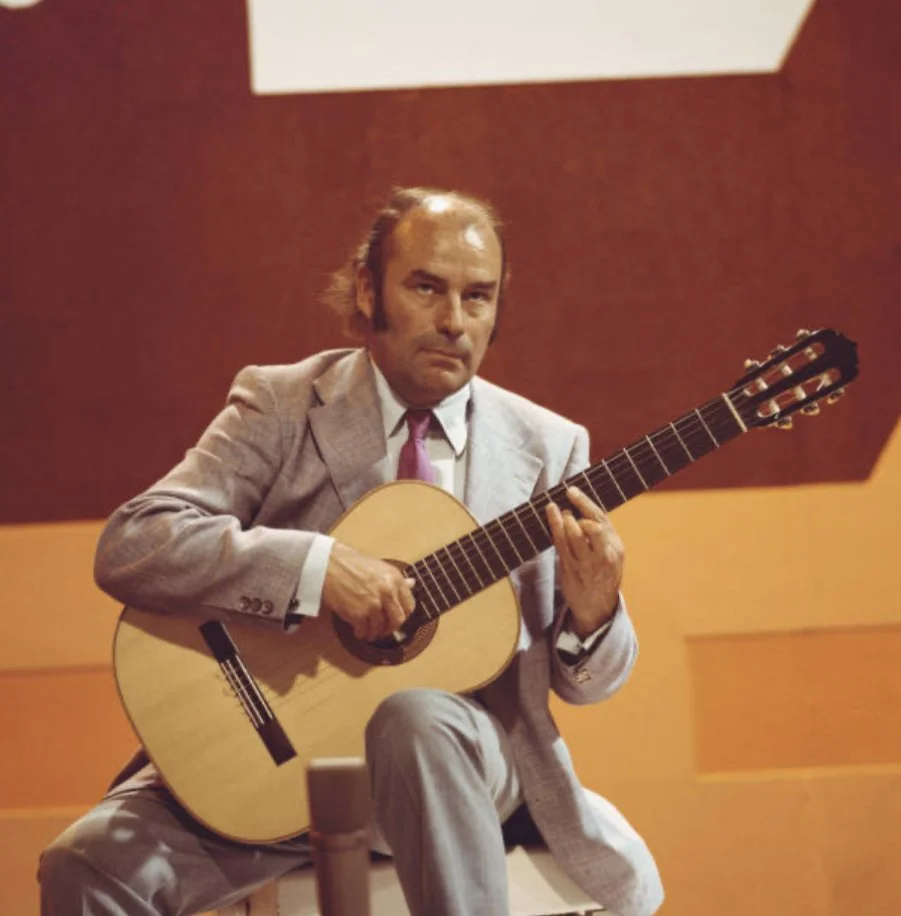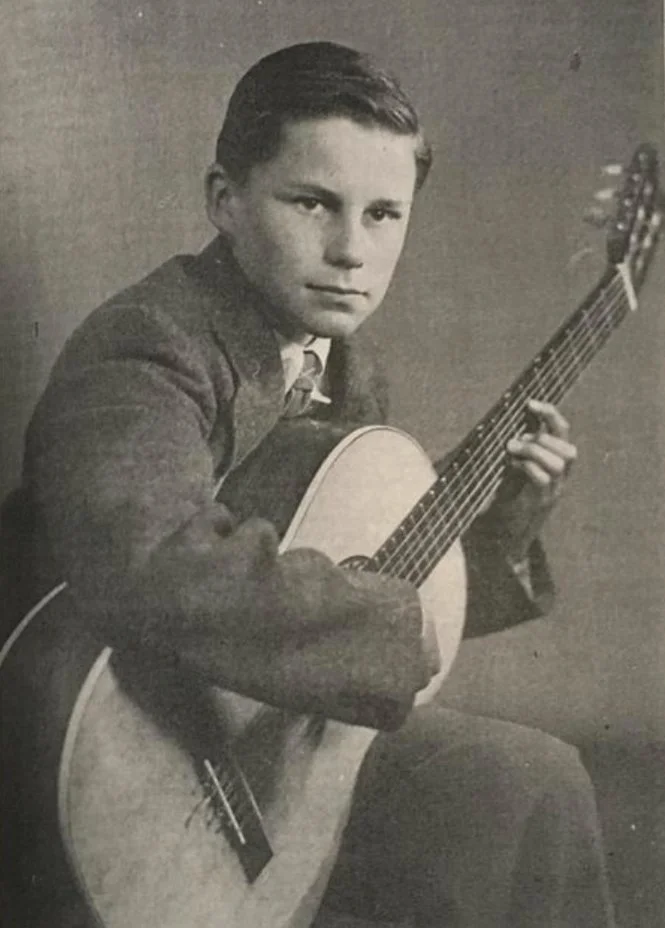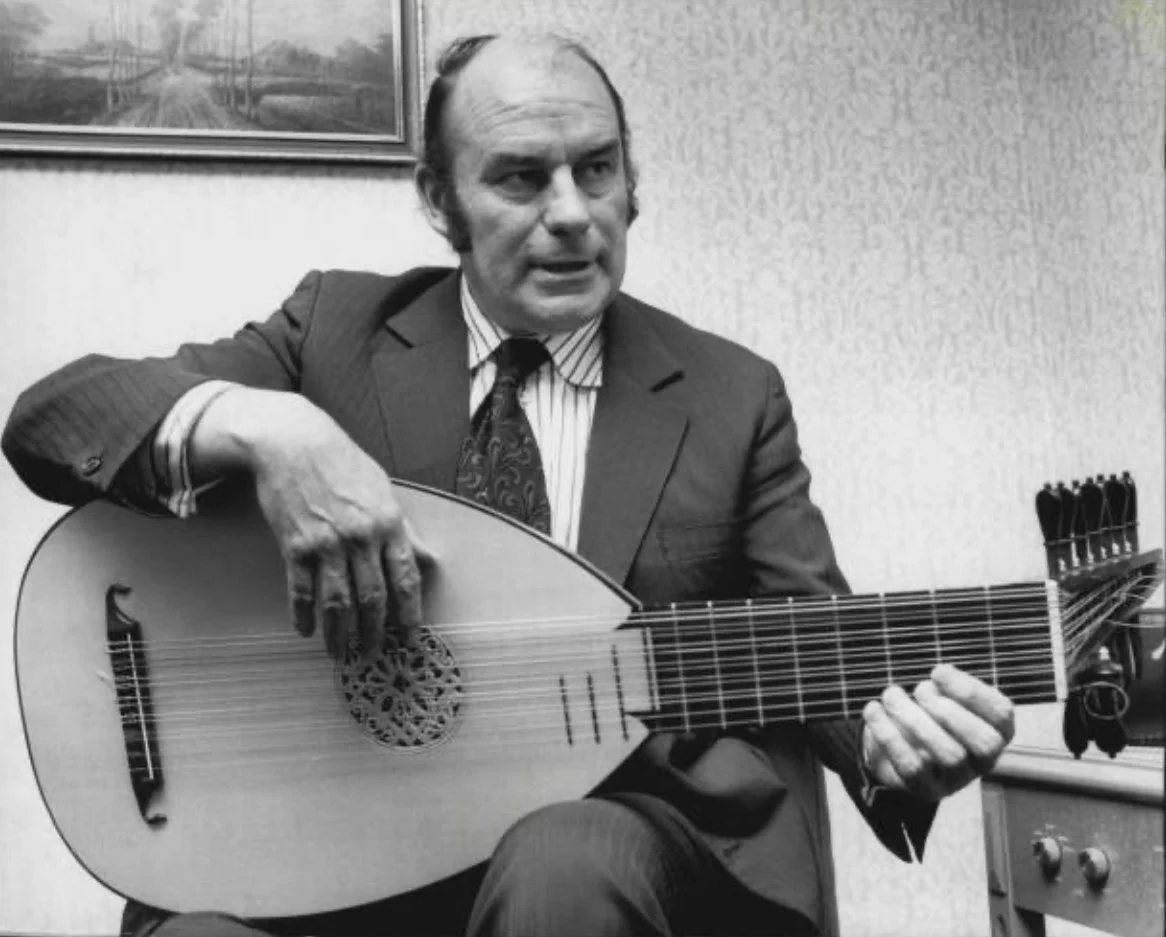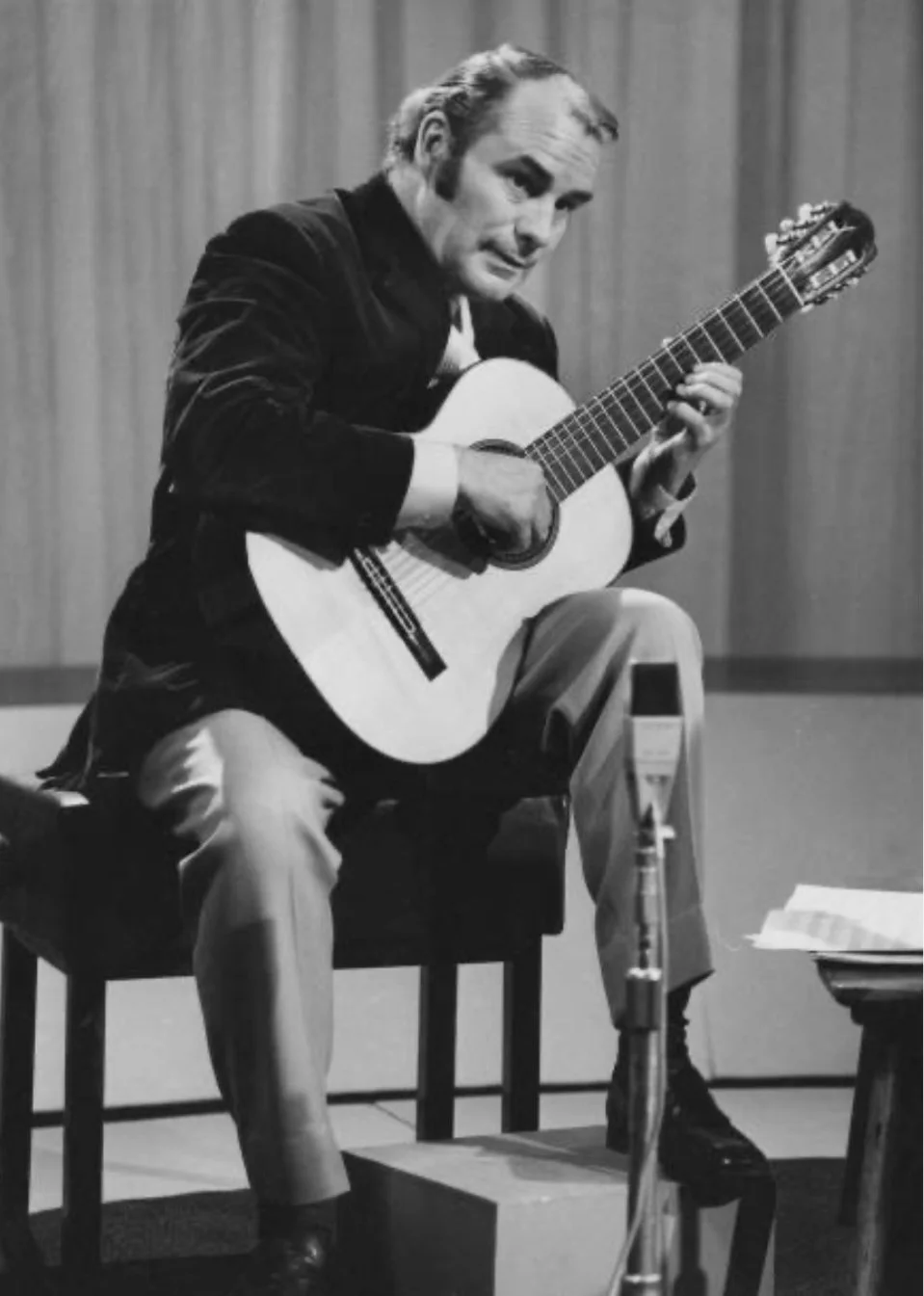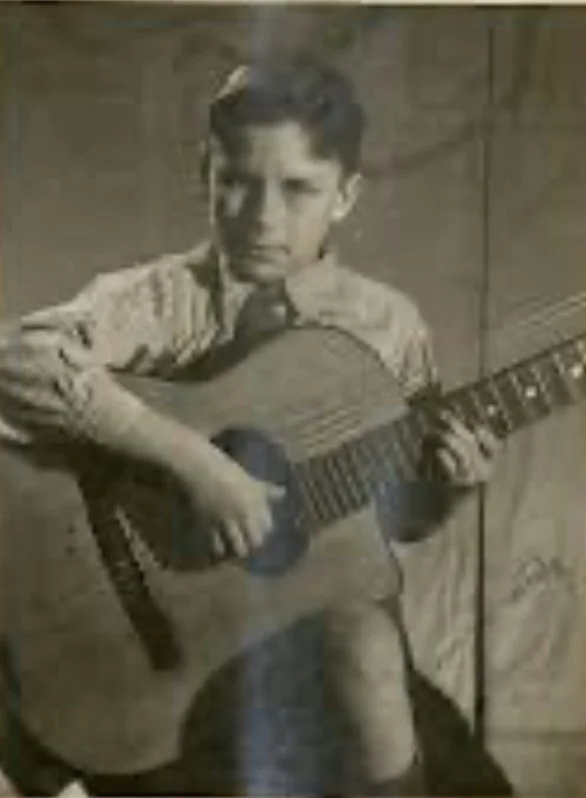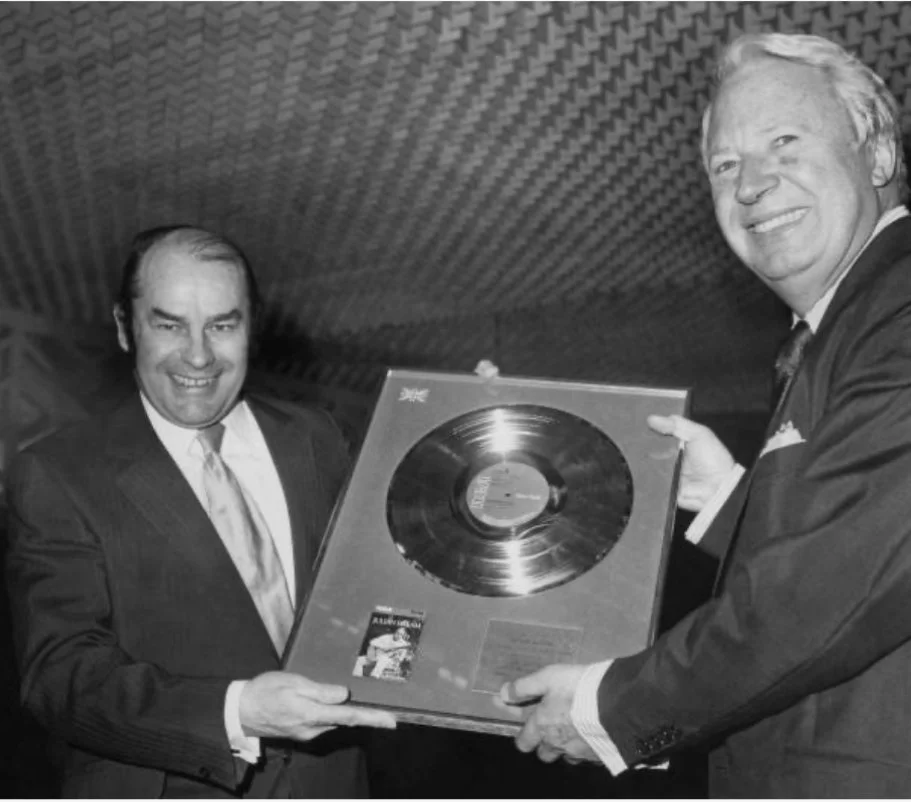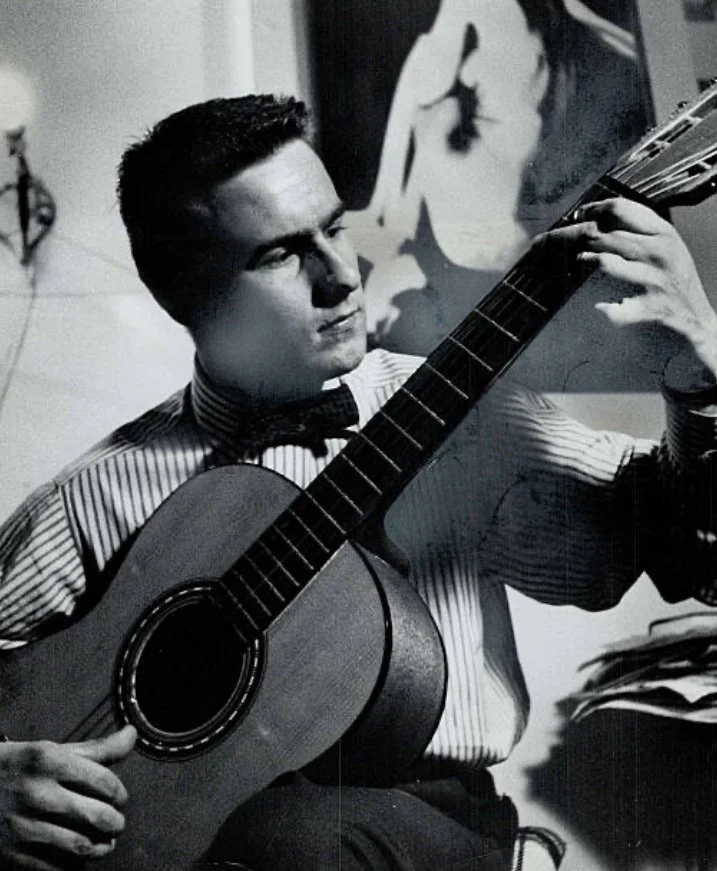Images may be subject to copyright
On this day, 3 February 1975, classical guitarist Julian Bream played Cardiff’s City Hall.
Regarded as one of the most distinguished classical guitarists of the 20th century, he played a significant role in improving the public perception of the classical guitar as a respectable instrument. Over the course of a career that spanned more than half a century, Bream also helped revive interest in the lute.
On his 11th birthday, Bream was given a small gut-strung Spanish guitar by his father. He became something of a child prodigy, at 12 winning a junior exhibition award for his piano playing, enabling him to study piano and composition at the Royal College of Music. He made his debut guitar recital at Cheltenham on 17 February 1947, aged 13; in 1951, he debuted at Wigmore Hall.
Bream's recitals were wide-ranging, including transcriptions from the 17th century, many pieces by Bach arranged for guitar, popular Spanish pieces, and contemporary music, for much of which he was the inspiration. He stated that he was influenced by the styles of Andrés Segovia and Francisco Tárrega.
Bream had some "sessions" with Segovia but did not actually study with him. Segovia provided a personal endorsement and scholarship request to assist Bream in taking further formal music studies. Bream's work showed that the guitar could be capably utilized in English, French, and German music.


